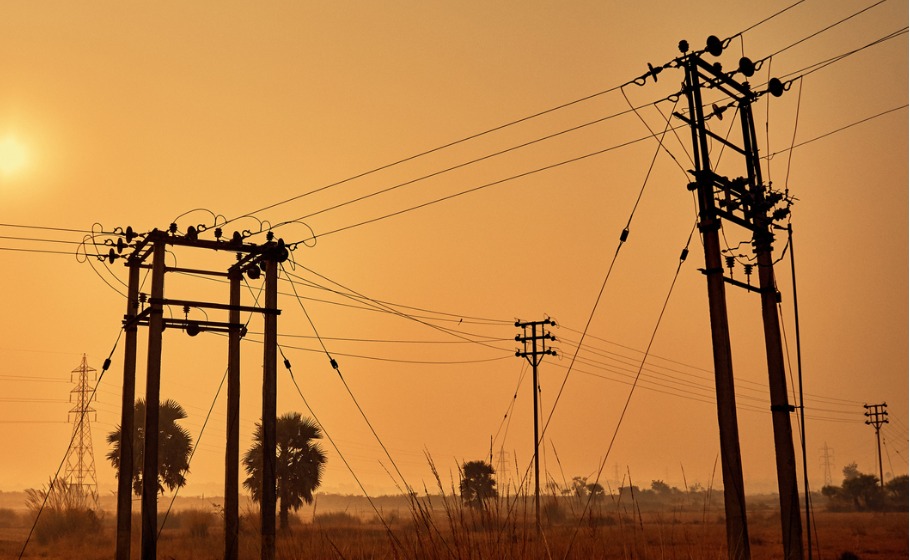
Power play: Frequent outages come back to haunt DMK govt in Tamil Nadu
Charged with causing frequent power outages, DMK govt in Tamil Nadu blames predecessor for poor maintenance of lines and machinery

The years between 2006 and 2011 were a nightmare for the DMK because of the frequent power cuts in the state. It appears, the problem has begun to haunt the ruling party in Tamil Nadu all over again.
Over the past few weeks, districts across Tamil Nadu have been witnessing at least three or four hours of power failure every day. This at a time when the people are already vexed about the government’s steadfast refusal to extend the deadline to pay electricity bills.
In a press briefing, Electricity Minister V Senthil Balaji accused the previous AIADMK government for the present condition. “In the last 10 months, no maintenance work was carried out. Because of that we are having frequent power outages. We are trying to rectify this within 10 days,” he said. He added that squirrels were running on power cables, and this added to the outage problem.
War of words
Amid the fierce row over power outages, the DMK and AIADMK are also engaged in a war of words over the correct term to describe the situation. The Tamil words min thadai (power outage) and min vettu (power cuts) are being used alternately, both by politicians and the media.
The DMK, while agreeing that Tamil Nadu is not a minmigai maanilam (power surplus state), insists that what it is going through now is min thadai. According to experts, a state can be termed a power surplus one only if it generates more power than what’s consumed, and distributes it to other states. But Tamil Nadu has locked its power plants and purchases power from the market for a higher price and hence it cannot be called a power surplus state.
This leads to the question: Why should the state buy from the market when it claims it has the potential to generate surplus power?
“In many power plants, the cost of generating the power is more than what the private companies are selling in the market. That’s the reason the state purchases power from the market,” said S Gandhi, President, Power Engineers Society of Tamil Nadu.
Blame game
Though the DMK blames the AIADMK for the current power woes, a large section of society has begun to criticise the ruling party, alleging that it would be typical of it to indulge in such practices. There is sharp criticism in social media on the frequent power cuts/outages.
“In no way the DMK can be held responsible — not only now but also during their last regime,” said Vishnu Rao, a Chennai-based researcher who is studying the power industry. “During their last regime, the party had discussions with many private players to start a power plant. But most of them have not materialised.”
“That was also the time when a lot of industries set up plants here. While industry was developing, we were unable to meet the power demand. That’s why there were several outages,” he added.
Gandhi said the past AIADMK regime had created strife between the management and employees of the state electricity department, which could also be a reason for the outages.
Employee cooperation
“In all my years of service, the employees of the electricity department used to hold a token protest against (controversial) Central or state policy. But now the employees are going for strikes en masse for many days for various issues. Earlier, even if the employees were on strike, the maintenance work continued to be carried out. But now, only when their complaints are addressed do they act. That’s the situation the past government has created,” he said.
Only when there is an increase in the gap between power generation and demand, one can call it a power cut, he said, adding that Tamil Nadu has surplus generation.
“Between 1991 and 1996, there were no power plants set up. Between 1996 and 2001, the state planned for 45,000 MW power but was able to set up only 17,000 MW. After 2002, there was a sharp increase in the consumption of consumer products — it shot up from 12% to 36%. At that time, the whole country was facing huge power cuts. This continued till 2012.”
It may be recalled that before 2014, the southern grid was not attached to the national grid and Tamil Nadu had only DC lines.
“Whether we received power from Maharashtra or Odisha, it was distributed only through DC lines. We lacked AC lines to get power from other regions. We had just started laying the AC lines. This became an additional constraint for the DMK then,” recalled Gandhi.
Maintenance is critical
The problem of ‘no maintenance’ has been around for the past four or five years, since the AIADMK government planned to hand over the electricity board (EB) to the private sector, alleged K Arul Selvan, President, Tamil Nadu Power Engineers Organisation.
“They thought to hand over the EB to private players. It was the major reason why employees had a conflict with the management then. But that has been resolved now because this government wants to run EB as a public enterprise,” he said.
But, the present government’s promise to rectify the power outage issue within 10 days is not feasible, contended Selvan. “There is a rule that maintenance should be carried out periodically, such as monthly, quarterly, half yearly and yearly. The machines should be switched off and maintenance should be carried out.
“If it done as per the rule, the machines will be in good condition. But if the maintenance is not there, the machines develop problems. To repair them we need more manpower and more time. It will take at least six months to one year to bring down the power outages,” he added.


